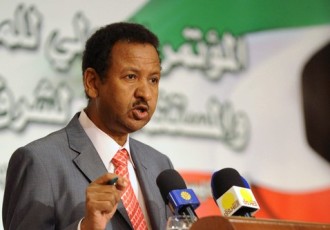Sudan foreign ministry denies implementation of new policy towards US
August 3, 2011 (KHARTOUM) – The Sudanese foreign ministry poured cold water on calls by a senior official in the ruling National Congress Party (NCP) to revise ties with the United States.

Ismail revealed that the NCP put in place a new strategy for dealings with the international community including the US adding that Khartoum may restrict movements of US diplomats and monitor their activities as well as their bank accounts.
He said that actions like this in the past have yielded positive results for Sudanese diplomacy.
But Sudan’s foreign ministry spokesperson Al-Obaid Marawih was quoted by the independent Al-Ahram Al-Youm as saying that they have received nothing from the NCP on a new policy with the US.
The Sudanese foreign minister Ali Karti has appeared to be fighting internal battles with NCP hardliners who want a tougher approach with the US administration.
Last month he criticised a resolution adopted by the NCP dominated parliament bashing the US Congress’s hostile attitude towards Sudan. Karti described this as “excessive zeal” saying that it will backfire.
But the parliament’s deputy speaker said that Karti’s remarks represent his personal views only.
Two visiting US officials recently including special envoy Princeton Lyman and Assistant Secretary of State for Democracy, Human Rights, and Labor Michael Posner received a cool welcome in Khartoum.
Neither Lyman nor Posner have been able to meet with key Sudanese officials in what appeared to be a deliberate move.
The US promised Sudan that it would be removed from the list of state sponsors of terrorism in return for cooperation on the referendum vote that led to Southerners voting for secession from the North.
South Sudan officially became an independent state on July 9 and its Northern neighbor was the first to recognise the new state.
The US said it initiated the process to de-list Sudan but stressed it would only be dropped if it met all criteria under US law.
Since then, however, the North and South have failed to permanently resolve a dispute over the border region of Abyei and seen fresh violence in South Kordofan state, another border flashpoint.
US officials said Khartoum needed to follow through on all of these, as well as improve conditions in the western region of Darfur, before Washington could move on improving bilateral ties.
(ST)
